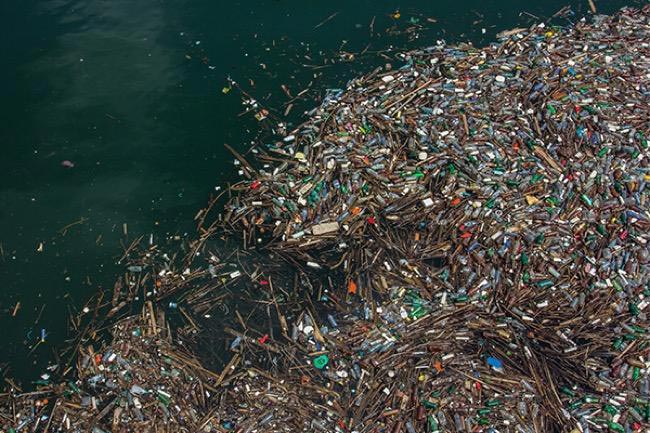McMaster researcher warns plastic pollution in Great Lakes growing concern to ecosystem

Plastic pollution in the Great Lakes. Credit: Alliance for the Great Lakes
In an article published this month in the Journal of Waste Resources and Recycling, Gail Krantzberg, a professor in the Booth School of Engineering Practice and Technology at McMaster University, argues that while plastic waste in the oceans has generated widespread global attention, few realize the problem is also getting much worse closer to home.
“We are increasingly detecting microplastics in the waters and fish and wildlife in the Great Lakes,” she says. “A fish with a gut full of plastics cannot be a healthy fish and can, in fact, starve to death. We know this problem is increasing in severity.”
Microplastics, which are typically less than 5 mm in size, are found in textiles, medicines and personal care products such as facial scrubs, toothpastes and cleansers.
Significant concentrations of microplastics have found their way into the Great Lakes and surrounding watersheds for several reasons which include dense urban populations which produce more plastic litter, increasingly severe storms which overwhelm municipal water treatment facilities sending runoff into the ecosystem and the failure of recycling efforts.
Much of what we believe we are recycling actually ends up in the landfill and flies away into our streams, rivers and lakes, explains Krantzberg.
Some studies have found that plastic debris can travel up to 100 km in the atmosphere, possibly further, and accumulates in large quantities along shorelines, beaches, and in open freshwater and marine environments.
“It is hard to conceive of recapturing all the plastics that are now in the lakes, but we can make a difference by eliminating many unnecessary plastics from use such as plastic straws, cutlery, bags and other disposable waste,” she says.
By some estimates, the overall economic impact of plastics to marine ecosystems is expected to reach $13-billion US per year.
Media Contact
All latest news from the category: Ecology, The Environment and Conservation
This complex theme deals primarily with interactions between organisms and the environmental factors that impact them, but to a greater extent between individual inanimate environmental factors.
innovations-report offers informative reports and articles on topics such as climate protection, landscape conservation, ecological systems, wildlife and nature parks and ecosystem efficiency and balance.
Newest articles

Properties of new materials for microchips
… can now be measured well. Reseachers of Delft University of Technology demonstrated measuring performance properties of ultrathin silicon membranes. Making ever smaller and more powerful chips requires new ultrathin…

Floating solar’s potential
… to support sustainable development by addressing climate, water, and energy goals holistically. A new study published this week in Nature Energy raises the potential for floating solar photovoltaics (FPV)…

Skyrmions move at record speeds
… a step towards the computing of the future. An international research team led by scientists from the CNRS1 has discovered that the magnetic nanobubbles2 known as skyrmions can be…





















